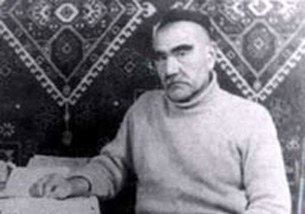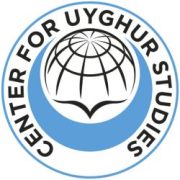
Uyghur Figures – 12
Abdulraouf Makhdum Al-Ibrahimi was born in Ghulja in 1914. He spent his childhood and youth studying Islamic sciences and modern education in Islamic schools. Later, he pursued accounting and became a renowned accountant in the city of Ghulja. Following the peace treaty between the Kuomintang and the East Turkestan Government in 1946, he served as President of the Ghulja City Bank.
Abdulraouf actively participated in the Uyghur Enlightenment movement that flourished in East Turkestan during the 1920s. He attended schools established by intellectuals like Masud Sabri and Girgis, who had been educated in Istanbul and other global centers of knowledge. Their interactions deeply influenced Abdulraouf, particularly their ideas on nationalism and Turkic identity.
The East Turkestan revolution, which began in the 1920s, profoundly shaped his worldview. Revolutionary leaders such as Timur Khalifa, Hoja Niaz, Sabit Damla, Maqsud Muhiti, Mahmud Muhiti, and Muhammad Amin Bughra were pivotal in inspiring his patriotic and revolutionary ideas. Armed with this ideological foundation, Abdulraouf sought the path to liberation and prepared himself for struggle.
In April 1944, when the Freedom Organization was founded in Ghulja under the leadership of Elihan Tore Saghuny, Abdulraouf was one of its first members, becoming part of the original 12-member committee. On November 12, 1944, with the declaration of the East Turkestan Republic, he was appointed Secretary-General of the Government.
From the Republic’s inception, Abdulraouf made significant contributions to its establishment, growth, and protection. His efforts in building the Government and defending its independence made him one of the most revered figures in East Turkestan’s modern history.
In 1951, Abdulraouf was arrested under accusations of “Turkic Nationalism” and “Islamic Unity” and sentenced to death penalty. Although his initial death sentence was later overturned, he remained imprisoned until 1953. In 1957, he was again accused of nationalism, reflecting the ongoing oppression he faced.
Abdulraouf grasped the harsh reality facing his nation and foresaw the grim future awaiting his people. In 1963, he fled to the Soviet Union with his children, departing with “tears in one eye and blood in the other.” Life in exile was equally challenging, but he remained steadfast in his mission.
Despite living half his life in Ghulja and enduring hardships in exile, Abdulraouf dedicated his entire life to the liberation of his homeland and people. His revolutionary spirit remained undiminished, and he lived with enduring love, sorrow, longing, and hope for East Turkestan until his last breath.
In December 1992, Abdulraouf participated in the first East Turkestan National Congress in Istanbul, where he shared his insights. His speeches often revolved around “The Issue of the East Turkestan Republic.” He condemned the oppressive regimes of the Kuomintang and communists, describing them as “black dogs” and “red dogs,” and “wolves of the same forest”*. He reserved particular ire for Stalin, whose betrayal cost the Uyghur people their independence, freedom, homeland, and honor.
Abdulraouf urged young people to learn from their history, marked by blood and tears, and to resist despair. In his long memoir, “Some Observations from the East Turkestan Revolution”, published in the Yeni Hayat newspaper in Almaty on October 15, 1994, he reflected on his life’s experiences. In interviews with Radio Free Asia, he reiterated the lessons of his life, shaped by struggle and sacrifice.
An Islamic scholar, Turkestani thinker, and Mujahid, Abdulraouf Makhdum passed away on August 3, 2005, in Almaty, Kazakhstan.
By Ahmed Igemberdi
*Expressions in Uyghur language
Copyright Center for Uyghur Studies - All Rights Reserved
